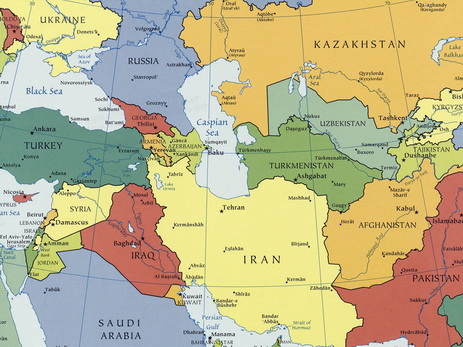USnews.com: Follow the Modern Silk Road

The U.S. must participate in Central Eurasia's commerce network – American jobs and national security may depend on it.
By Steve Cohen | U.S. congressman, 9th district of Tenn.
From terror bombings to border wars, Central Eurasia often makes news because of bloodshed that threatens regional stability and international security.
But now, four countries from a critical crossroads between Europe and Asia – Azerbaijan, Georgia, Kazakhstan and Turkey – are joining forces for commerce, not conflict. They're building a network of transportation infrastructure, special economic zones, and integrated customs and cross-border procedures to promote trade, travel and investment.
Because American businesses and workers need access to this region's 110 million consumers, and China, Iran and Russia must not dominate this strategically situated area, the United States should support the Trans-Caspian East-West Trade and Transit Corridor.
Make no mistake: If we don't take part in this endeavor now, we will be shut out of this geopolitically pivotal, economically emerging area for the foreseeable future.
Throughout my tenure in public office, I've seen new and modernized highways, airports and seaports improve local economies here in the U.S. Now we're going to see how similar smart investments can make a difference in a developing area abroad.
Today's headlines and hundreds of years of history explain why this corridor is so important. During the 15th century, the legendary Silk Road brought valuable goods, ideas and inventions from China to the West, including irrigation, paper and gunpowder. In the 21st century, the "Modern Silk Road" will connect the people, markets and economies of East Asia, Central Asia, the Caucasus and Europe.
This corridor is indispensable because, even now, 21st century products, such as personal technology devices, are shipped from East to West using 15th century transportation. Products assembled in Asia can take seven weeks by boat to arrive in Europe. But the same products can be carried to the same destinations in half that time by rail. Meanwhile, modern technologies, such as pipelines, cable lines and containerized shipping, are enabling easier and more effective ways to exchange ideas and information as well as transport energy resources and perishable products.
In order to make the most of these technological advances, Azerbaijan, Georgia, Kazakhstan and Turkey are investing in regional infrastructure projects. Among them are three seaports on the Caspian Sea and the Black Sea, a rail project in Istanbul with an undersea rail tunnel between the European and Asian sections of Turkey's largest city, and a regional railway linking Azerbaijan, Georgia and Turkey.
With this combined infrastructure in place, it will be possible to ship products across the Caucasus and Central Asia more rapidly, less expensively and in greater quantities. For instance, the time it takes to ship products from China to Istanbul will be cut by more than half.
Soon, the worldwide supply chain will get a few links shorter, and trade and investment between East and West will be reinvented. Just as half a millennium ago, Central Eurasia will play a crucial role in the world's economic, political and cultural life. The U.S. should not sit on the sidelines and allow our rivals to take center stage.
Understanding the Modern Silk Road's significance, China is investing heavily in the region's infrastructure, while Iran and Russia are flexing their diplomatic and military muscles. Although the U.S. has also supported regional development projects, there is the danger that American policymakers will disengage from the area, putting our geopolitical rivals in dominant positions and leaving our longtime partners, including Azerbaijan and Georgia, to fend for themselves in a dangerous neighborhood.
The strategic and economic stakes are too high for the U.S. to cut back our commitments to this pivotal part of the world. For example, energy-rich Azerbaijan borders our longstanding adversaries, Russia and Iran. Nonetheless, Azerbaijan is a leading supplier of oil and natural gas to Europe and Israel – a role that Americans appreciate but Russia and Iran undoubtedly resent.
As a majority-Muslim nation with a secular state, Azerbaijan is an invaluable U.S. ally, expediting the transportation of Americans through its territory to Afghanistan, sending troops to Iraq and the Balkans, and taking action against narcotics smuggling, violent extremism and terrorism and nuclear proliferation.
Additionally, Azerbaijan exemplifies the economic potential of Central Eurasia, which holds 110 million increasingly affluent consumers and skilled workers. Furthermore, with its two-way trade with the U.S. totaling $2.3 billion and poised for takeoff, Azerbaijan is under contract to buy eight civilian airplanes from Boeing, thereby supporting more than 11,000 high-paying American jobs.
More than five centuries ago, the nations that did not participate in the commercial and cultural exchanges of the Silk Road fell behind the pace of progress. Now, as we face an ever-globalized economy, Americans must get behind the Modern Silk Road. Our companies, workers and national security may well depend on it.
Cohen is a congressman representing the 9th District of Tennessee and is co-chair of the Congressional Azerbaijan Caucus.














